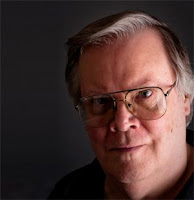INTERNATIONALLY RENOWNED JAZZ PIANIST / COMPOSER FRED HERSCH NOMINATED FOR TWO 2017 GRAMMY AWARDS FOR RECENT PALMETTO CD
SUNDAY NIGHT AT THE VANGUARD
“Best Jazz Instrumental Album” and “Best Improvised Jazz Solo”
Hersch has now earned a total of ten Grammy nominations since 1993 in the categories of Best Jazz Instrumental Performance, Best Instrumental Composition and Best Improvised Jazz Solo.
A select member of jazz’s piano pantheon, Fred Hersch is a pervasively influential creative force who has shaped the music’s course over more than three decades as an improviser, composer, educator, bandleader, collaborator and recording artist. A ten-time Grammy Award nominee, he continues to earn jazz’s most prestigious awards, including recent distinctions as a 2016 Doris Duke Artist and 2016 Jazz Pianist of the Year from the Jazz Journalists Association.
Hersch has long defined jazz’s creative edge in a wide variety of settings, from his breathtaking solo recitals and exploratory duos to his extraordinary trios and innovative chamber settings. With some three dozen albums to his credit as a leader or co-leader, he consistently wins an international array of awards and lavish critical praise for his albums. The 2015 Palmetto album Fred Hersch SOLO won a Coup de Coeur from L’Academie Charles Cros – his third such award – as well as the French Grand Prix de L’Académie de Jazz.
The feature documentary The Ballad of Fred Hersch premiered at the prestigious Full Frame Film Festival in March 2016 to a sold-out house and rave reviews. His memoir, Good Things Happen Slowly, will be published in 2017 by Crown Books/Random House.
“The resulting album…confirms that he’s still one of the most insightfully lyrical searchers in his field. It also underscores how his bond with the bassist John Hebert and the drummer Eric McPherson, while never less than strong, reaches a rarefied plane in this particular room.” – Nate Chinen, New York Times
“His sparkling tone, harmonic inventiveness, dynamic control, and mastery of rubato are striking from the opening seconds of the first track.” – Fred Kaplan, Stereophile
“It is, perhaps, his trio work that will be his legacy to the jazz pantheon. He is Hersch. A combination of fearless determination and sensitive interpretation. *****” – Mark Corroto, All About Jazz
“…’Sunday Night At The Vanguard’ takes the trio’s propensity for dramatic lyricism, harmonic exploration and rhythmic experimentation to new levels of poise and audacity.” – Ed Enright, DownBeat Magazine (Editor’s Pick)
“Like the Modern Jazz Quartet, the Fred Hersch Trio is an entity where the indiidual parts coalesce into a greater whole. Sunday Night at the Vanguard is an instant classic, and the best piano trio album I have heard in years.” – Thomas Cunniffe, Jazz History Online
“This is as good as it gets.” ***** – Cormac Larkin, The Irish Times
“You’ll hear a Monk tune that sounds nothing like Monk, and you’ll hear originals that sound like standards and standards that sound like originals.” – Rick Anderson, CD Hotlist (Rick’s Pick)
“Fred Hersch chose to give listeners what he thought was the ‘lightning in a bottle’ of a night when the band was ‘in the zone’ - this glorious album should make you want to see the band live. And, do go see and hear them, as the Fred Hersch Trio is among the best ensembles of any size playing in this day and age.” – Richard Kamins, Step Tempest
“Hersch is one of the major living jazz pianists but he has never quite become a star. Perhaps because he is so technically refined, so comprehensive in his coverage of the maistream piano universe, he evades categorization. In a perfect world where you were king, you would sit Fred Hersch down and make him play every song you ever loved.” – Thomas Conrad, New York City Jazz Record
“.... their empathetic interplay makes them the natural heirs to the Evans/LaFaro/Motian unit the revoloutionized the jazz-piano trio on the Village Vanguard stage.” – Matt R Lohr, Jazz Times
“A pianist of uncommen senitivity combined with sn infinite capacity to swing, Hersch benfits greatly from a remkable intective, elastic rhythm section in bassist John Hébert and drummer Eric McPherson.” – Bill Milkowski, Absolulte Sound
“Pianist Fred Hersch is a painter of musical portraits that are infused with tonal color and harmonic depth, all presented within a frame of originality, sophistication, and virtuosity. His latest trio recording, Sunday Night At The Vanguard continues to demonstrate his commitment to these traits.” – Pierre Giroux, Audiophile Audition
“Few pianists have possessed a more comprehensive, magisterial technique or musical integrity.... Fred Hersch is both the grandest and most lyric of virtuosos.” – Raul Da Gama, Jazz DaGama
“It’s a good thing then that Hersch’s disc is filled with so much lyricism, creative sparkle and personality. We’ll leave it to a later date to figure out where Sunday Night at the Vanguard fits in the jazz pantheon, but for now, let’s call it a richly satisfying listen that represents this latest edition of Hersch’s trio, which has already recorded once at the Vanguard, in full bloom, striving and succeeding in many musical directions.” – Peter Hum, The Ottawa Citizen
“After all their years together, take it for granted that pianist Hersch, bassist John Hébert and drummer Eric McPherson listen intently to one another and mesh with elegance on every level. However, taking for granted anything about the Hersch trio can only open you up to surprises. Close listening to this album brings great rewards.” –Doug Ramsey, Rifftides
Hersch has earned similar distinction with his writing, garnering a 2003 Guggenheim Fellowship in Composition. He’s collaborated with an astonishing range of artists throughout the worlds of jazz (Joe Henderson, Charlie Haden, Art Farmer, Stan Getz, Bill Frisell); classical (Renée Fleming, Dawn Upshaw, Christopher O'Riley); and Broadway (Audra McDonald). Long admired for his sympathetic work with singers, Hersch has joined with such notable jazz vocalists as Nancy King, Janis Siegel, Cecile McLorin Salvant, Norma Winstone and Kurt Elling.






































